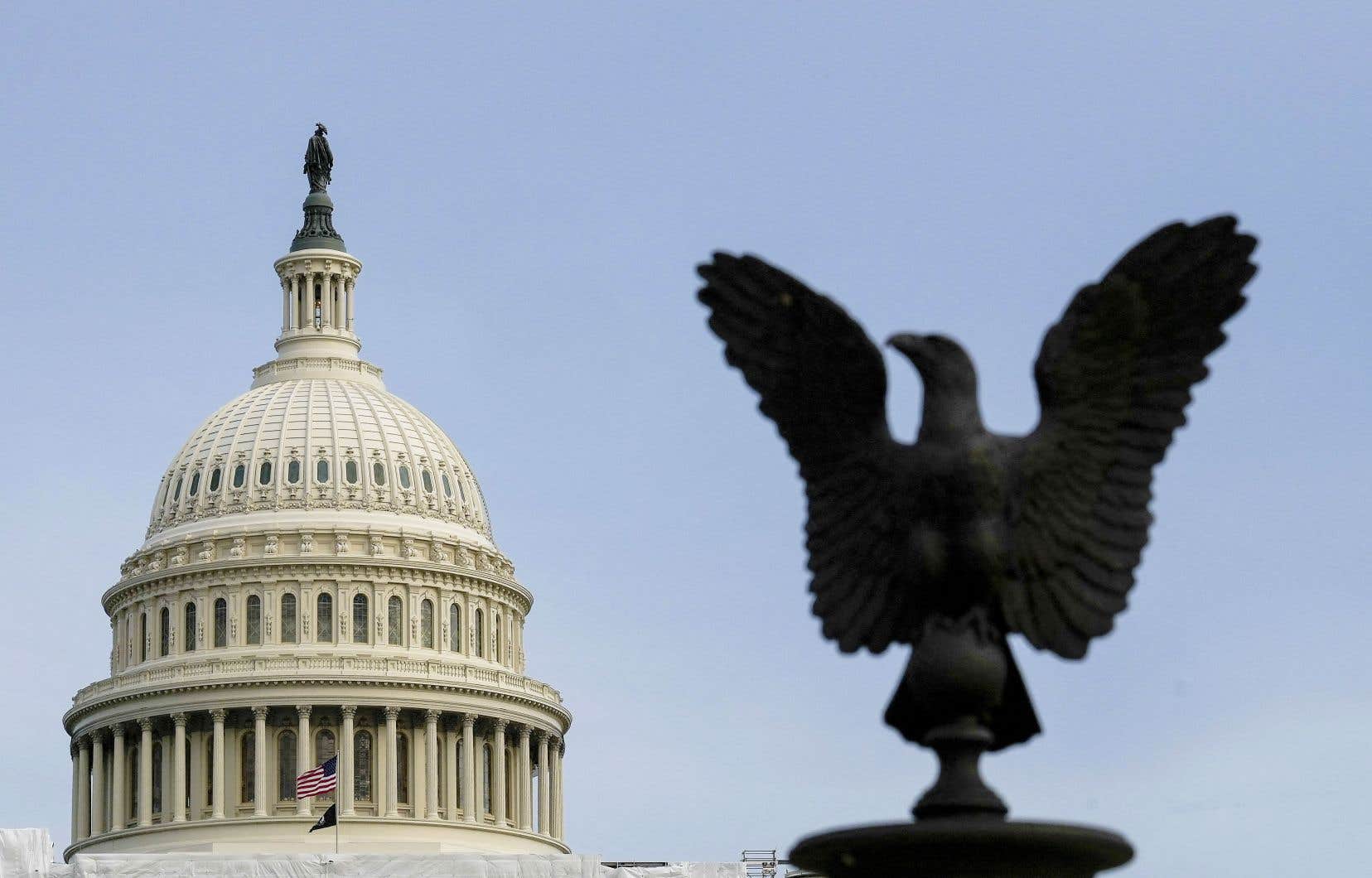While a default of payment from the United States is on the horizon, which would prove to be cataclysmic, the elected Democrats and Republicans continue to clash. The battle moved to Congress on Sunday, where the debate promises to be tense, and the outcome still uncertain.
After marathon-style negotiations, President Joe Biden and Republican Congressman Kevin McCarthy announced an agreement in principle on Saturday evening on raising the US debt ceiling, which helps to ward off the threat of bankruptcy as of June 5.
But the agreement must receive the approval of a divided Congress and is already the subject of a revolt of elected progressives and conservatives, some speaking of a “capitulation”.
“He may not satisfy everyone, but it’s a step in the right direction that no one expected,” Republican leader Kevin McCarthy defended on Fox News on Sunday, welcoming in particular a “historic” reduction in public spending. He predicted that a “majority” of elected Republicans would vote for the text.
The House of Representatives, where Republicans have a fragile majority of 222 to 213, will vote on Wednesday. Next will come the Senate, narrowly controlled by the Democrats (51-49).
President Biden also welcomed this “compromise” on Saturday evening, which is “good news, because it avoids what would have been a fault [de paiement] catastrophic”. He was to meet again in the afternoon with the Republican leader to finalize the terms of the agreement, which must also be transposed into a bill, according to a press release on Sunday from the leader of the Democratic minority in the House, Hakeem Jeffries.
Political Credit
The text of the agreement, which has not yet been disclosed, raises for two years – so until after the presidential election of 2024 – the public debt ceiling of the United States. This is currently set at $31.4 trillion. Non-defence spending will remain virtually unchanged next year and will increase only nominally in 2025.
Separately, new rules will apply to access to some federal aid programs, but according to a source familiar with the negotiations, the agreement protects the Inflation Reduction Act and the debt relief plan. student debt, signed by Mr. Biden.
“Overall, the deal is more of a victory for Biden and the Democrats, as it contains relatively limited budget cuts and avoids another showdown for the president during the remainder of his term,” said political scientist Nicholas Creel, who teaches at the Georgia College.
“Neither side has enough power to get what they want, so a compromise like this pisses everyone off a bit, but it’s probably the best they could hope for,” he adds. he, emphasizing that he should ” ultimately be approved” by Congress.
MM. Biden and McCarthy are playing their political credit in these negotiations. The first, who is a candidate for re-election, must avoid a bankruptcy with potentially catastrophic consequences, while the second seeks to establish his authority after having been badly elected to the perch at the start of the year.
President Biden had long refused to come to the negotiating table, accusing the opposition of taking the American economy “hostage”, but finally resolved to do so.
Still, an alliance of circumstance between elected progressives within the Democratic Party and elected conservatives threatens to derail everything. Conservative Republicans have already announced their opposition to the text, such as Representative Dan Bishop, who vilified Mr. McCarthy for having “achieved almost nothing”.
Without raising the debt, the first world power risks being in default of payment on June 5, unable to honor its financial commitments: salaries of civil servants, pensions or reimbursements to its creditors. Like almost all major economies, the United States lives on credit. But, unlike other developed countries, America regularly comes up against a legal constraint: the debt ceiling, the maximum amount of indebtedness of the United States, which must be officially raised by Congress.
This has long been routine legislative procedure. The Republicans have made it an instrument of political pressure.
